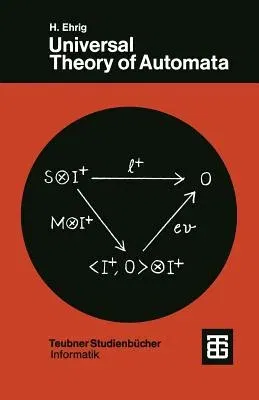H Ehrig
(Author)Universal Theory of Automata (1974)Paperback - 1974, 1 October 1974

Qty
1
Turbo
Ships in 2 - 3 days
In Stock
Free Delivery
Cash on Delivery
15 Days
Free Returns
Secure Checkout
Part of Series
Xteubner Studienbücher Informatik
Part of Series
Xteubner Studienbucher Informatik
Print Length
240 pages
Language
German
Publisher
Vieweg+teubner Verlag
Date Published
1 Oct 1974
ISBN-10
3519020548
ISBN-13
9783519020547
Description
Product Details
Book Edition:
1974
Book Format:
Paperback
Country of Origin:
US
Date Published:
1 October 1974
Dimensions:
21.59 x
13.97 x
1.3 cm
ISBN-10:
3519020548
ISBN-13:
9783519020547
Language:
German
Location:
Wiesbaden
Pages:
240
Publisher:
Weight:
285.76 gm

